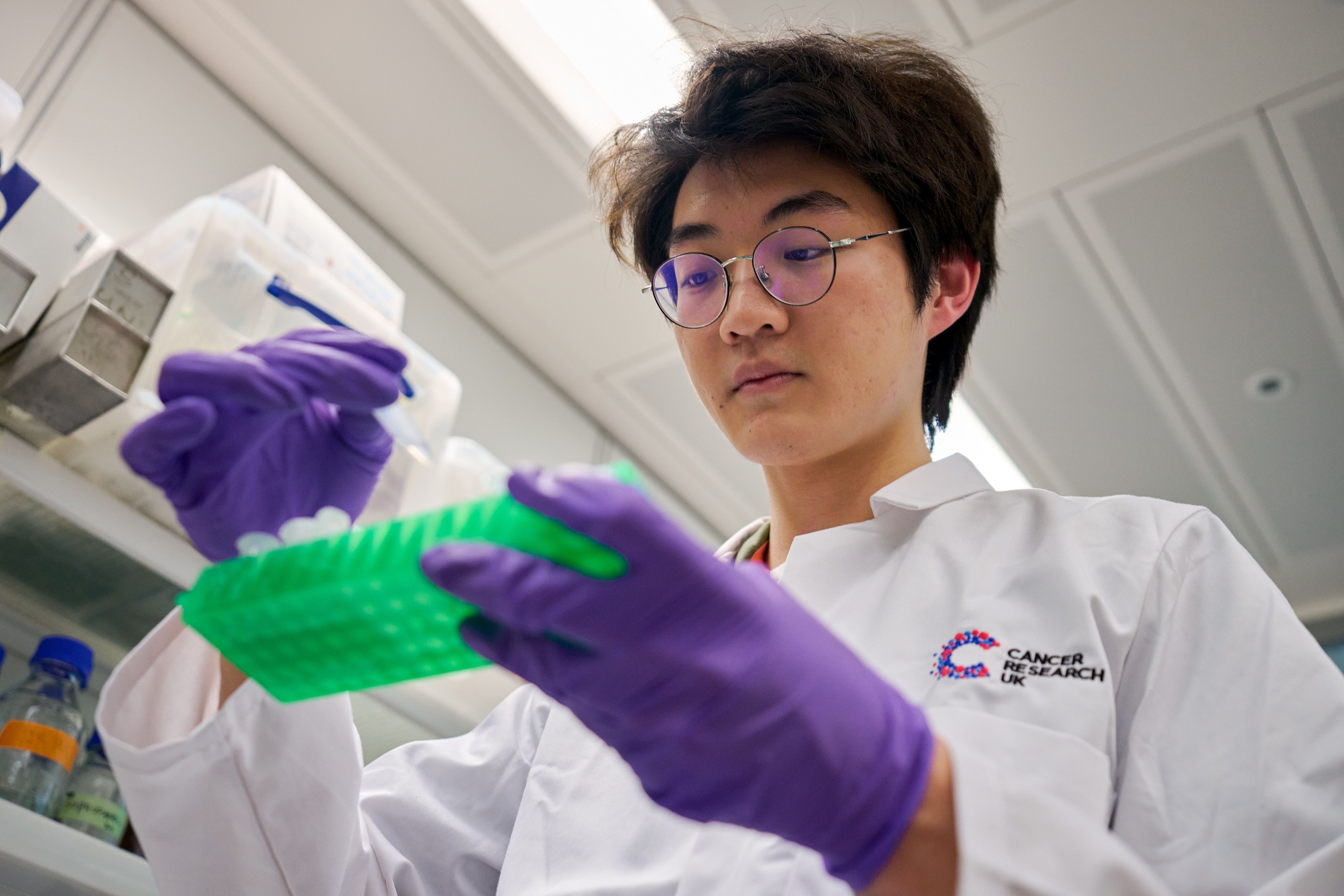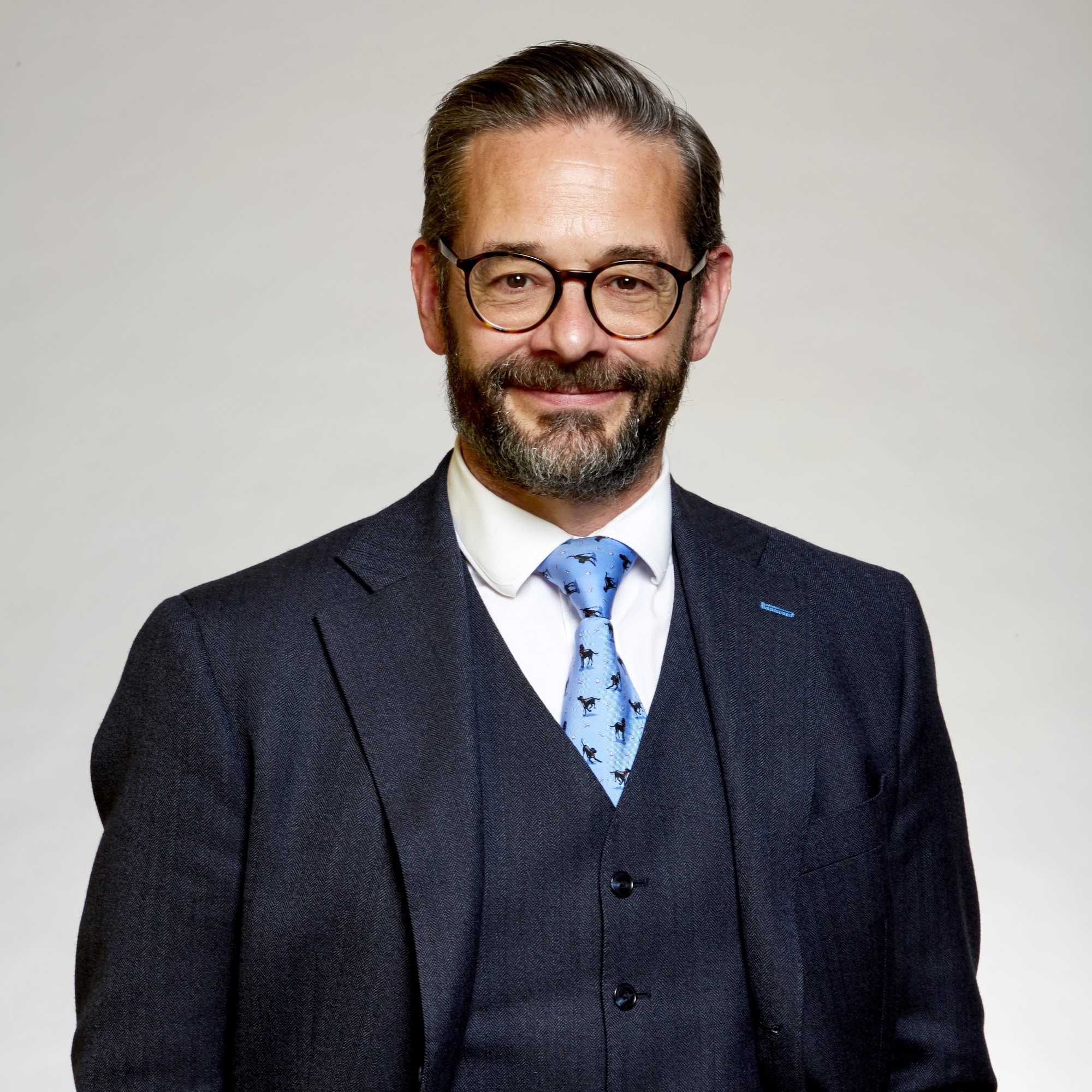
A mum from Impington has backed this week’s launch of Longer, better lives: a manifesto for cancer research and care, sharing how she might not be here today without early detection and research.
Lucy Edie, 53, was diagnosed with triple-positive breast cancer in April 2019. She started working for Cancer Research UK in 1999 and believes she owes her life to drugs and programmes the charity helped to develop.
Lucy is backing Cancer Research UK’s ambitious cancer plan for how the next UK Government could help avoid around 1,800 cancer deaths a year in the East of England by 2040 – saving the lives of more people like her.
Ahead of the next general election, the charity has published a manifesto that outlines five key missions to speed up progress in preventing, diagnosing and treating cancer.
Thanks to research, cancer survival in the UK has doubled since the 1970s. But the charity warned that with NHS cancer services in crisis and with rising numbers of new cancer cases – an estimated nearly 49,000 a year projected in the East of England by 2040 – this hard-won progress is at risk of stalling.
The UK still lags behind comparable countries when it comes to cancer survival, it said, and called on all political parties to make cancer a top priority in their party manifestos.
Whoever assumes office after the general election must commit to developing a 10-year cancer plan. Urgent action is also required to address a more than £1 billion funding gap for research into cancer over the next decade that will put hard-won medical advances at risk.
Cancer Research UK also called for: the introduction of measures to end cancers caused by smoking; improved early detection of cancer through initiatives including a lung screening programme; action to ensure cancer wait time targets are met; plus the establishment of a National Cancer Council – accountable to the Prime Minister – to drive cross-government action on the disease.
Lucy understands the vital importance of cancer investment more than most. That is why she is urging people across Cambridge to sign an open letter to party leaders at cruk.org/sign.
She is determined politicians get the message that beating cancer is vitally important to voters like her and says the next general election needs to be a turning point for people affected by the disease.
Lucy said: “Research into better treatments has given me the greatest gift – more time with my loved ones.
“That’s why I’m backing Cancer Research UK’s manifesto. I simply wouldn’t be here without the scientists who strive to find new ways to outsmart the disease and the incredible NHS staff who treated me.
“There are so many pressures at the moment, with funding and the state of cancer services across England, but the politicians must make sure people affected by cancer don’t pay the price for this now and in the future.”
It was whilst away for a work event Lucy first discovered a grape-sized lump on her left breast.
She said: “I went back to my hotel room, felt a shooting pain and as I felt for the source of the pain it was very clearly a hard lump.
“I’d previously found a lump on my lymph nodes, but it was so tiny I’d thought it was maybe some kind of immune response or a cyst.
“I think, if you work for a cancer organisation, you’re always hyper-aware and wondering if you’re worrying about nothing, but in this case I absolutely knew and called the doctors the very next morning.”
Lucy was not the first in her family to be diagnosed with cancer, having recently lost her mum to a brain tumour and previously a grandfather and an uncle to prostate cancer. Her dad is currently being treated for stomach cancer.
She said: “In between finding the lump and getting my diagnosis, all I did was fear the worst.
“As well as feeling scared about what lay ahead, I was concerned my dad had just gone through bereavement, whilst my son, Alexander, was still a child, only 11 at the time. He was really close to his grandmother and still dealing with that grief, trying to make sense of it, so I just felt anything happening to me would have been a massive blow. I thought ‘I can’t die’.”
Lucy’s cancer was found to produce large amounts of a protein called human epidermal growth factor receptor 2 (HER2) and this led to a morale-boosting conversation with her oncologist.
“He told me ‘You work for Cancer Research UK, so you’ll know that before Herceptin this would have been a really difficult conversation, but now this is very treatable’.”
Herceptin is a targeted cancer drug that was developed from research funded by Cancer Research UK. It works by attaching to HER2, stopping the cancer cells from growing and dividing.
In addition to Herceptin taken over the course of nine months, Lucy’s treatment included six months of chemotherapy and surgery to remove the lump in her breast, plus three lymph nodes from her armpit.
This was confirmed as her best course of treatment when she joined the Personalised Breast Cancer Programme. The programme was pioneered in Cambridge, thanks in part to Cancer Research UK funding, and sees patients have their DNA read like a barcode, with the whole genome of their tumour sequenced and the results returned within six to 12 weeks to inform treatment planning.
After a successful operation, fully removing what was left of the tumour after chemotherapy, Lucy underwent three weeks of radiotherapy to try and reduce the chance of it coming back. She also had her ovaries removed to cut off the supply of hormones that had fuelled the original tumour.
Since March 2020, Lucy has taken daily letrozole tablets – another drug Cancer Research UK played a big part in developing. When she started, she was told she would have to take them for 10 years, but subsequent research into their effectiveness means Lucy might be able to finish taking them as early as next year.
She said: “I feel so lucky to have had such supportive family, friends and colleagues, and to have been treated by the very best of clinicians, supported by the very best research, right here in Cambridge.
“If my diagnosis had come 15 years earlier, it might not have been treatable – but my story shows there’s hope.”
Such was her experience, Lucy actually took part in Race for Life, the flagship fundraising event of Cancer Research UK – where Lucy has now worked in various roles over 24 years, currently as part of its research information team – the day after her second round of chemotherapy.
Today, she continues to remain active, partly in an effort to help reduce the chances of the cancer returning, and enjoys spending time with husband Mike, 58, a software developer in Cambridge, and Alexander, now 16, who goes to Impington Village College.
She added: "So many people’s lives are touched by this disease and the numbers are only growing. That’s why we all need to get behind this manifesto and have our voices heard, so more families like mine can enjoy more moments with the people they love.”
Welcoming the manifesto, Professor Richard Gilbertson, Director of the Cancer Research UK Cambridge Centre and Head of the Department of Oncology at the University of Cambridge, and Research Lead for Cambridge Cancer Research Hospital, said:
"Cancer Research UK’s manifesto for tackling cancer is a bold and ambitious plan – and with one in two people expected to get cancer in their lifetimes, urgently needed. Cambridge can and will play an important part in helping realise this ambition."
"All of these elements will come together in our world-class Cambridge Cancer Research Hospital, transforming clinical pathways to benefit patients across the UK and save many more lives. Together, we will change the story of cancer."
The need for people across the East of England to have their say is clear – there are around 15,700 cancer deaths in the region every year. And, with a growing and ageing population, it is projected the number of people dying from cancer in the East of England could rise to around 19,000 a year by 2040.
Cancer Research UK’s spokesperson for the East of England, Michael Jarvis, said: “We’re grateful to Lucy for her support. We've made huge progress in beating cancer over the last 50 years – but it remains the defining health issue of our time. Cases are rising and we estimate half a million people will be diagnosed with cancer in the UK every year by 2040. People continue to face unacceptable delays to diagnosis and treatment, and the UK lags behind comparable countries when it comes to cancer survival.
“The public expect and deserve action. We calculate the recommendations made within our Manifesto for Cancer Research and Care will reduce cancer mortality by 15% by 2040 – helping avoid 20,000 cancer deaths in the UK every year. But only if we act now. I urge everyone to support the manifesto and sign our open letter to party leaders. The prize is a legacy of life-saving cancer research and care that will benefit the UK for decades to come.”
Avoiding cancer deaths in the East of England
Cancer Research UK’s Manifesto for Cancer Research and Care sets out a raft of measures that could help avoid an estimated 1,800 cancer deaths a year in the East of England by 2040.
The charity is calling on the next UK Government to:
- Back research: Set out a plan to close the more than £1 billion funding gap for research into cancer over the next decade.
- End cancers caused by smoking: Raise the age of sale of tobacco and fund a world-leading programme of measures to help people who smoke to quit.
- Drive earlier diagnoses: Implement proven measures, including a lung screening programme, to diagnose cancers early and reduce inequalities in access.
- End the waits: Ensure cancer wait time targets are met across England.
- Lead on cancer: Publish a long-term cancer strategy for England and establish a National Cancer Council, accountable to the Prime Minister, to drive cross-government action on cancer.
















